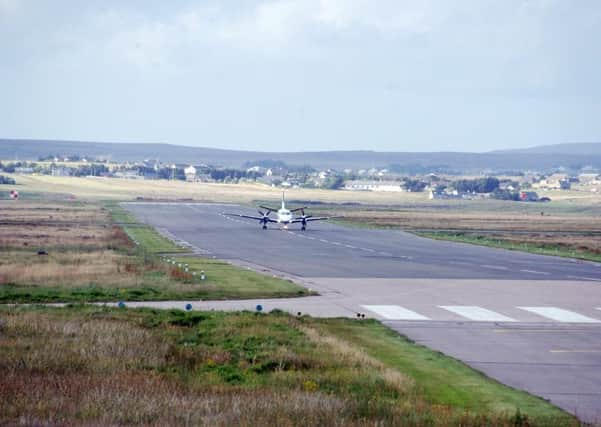Comhairle looks for support from Minister on air traffic control plan


The Minister was in Stornowy to promote the benefits of the Heathrow expansion and the knock-on beneficial effects of that project to areas such as Outer Hebrides.
The Minister explained that the expansion will deliver more capacity for domestic flights, with 100 more flights expected to and from Scotland - ensuring visitors and businesses will have easier links to places like the Islands.
Advertisement
Hide AdAdvertisement
Hide AdHowever, during her visit the Minister was also keen to hear local feedback from businesses and the Local Authority about air travel in general to and from the region.
She revealed that reliability of flights was one of the biggest issues of concern for businesses in terms of exporting goods and for bringing tourists into the area and she also touched on the recent plan to centralise air traffic control to Inverness airport.
This move, which is set to cost 17 jobs at Stornoway and Benbecula airports, is an area of concern to the Comhairle.
Councillor Uisdean Robertson, Chairman of the Council’s Transportation and Infrastructure Committee, said: “We were pleased to be able to meet with Baroness Sugg as we were able to raise our concerns regarding Highlands and Islands Airports Ltd’s (HIAL) proposals for air traffic management arrangements for the region.
Advertisement
Hide AdAdvertisement
Hide Ad“We have ongoing concerns regarding the impact that their centralisation strategy will have on the local economy of the Western Isles – with a total of 17 highly paid jobs being lost from Stornoway and Benbecula airports, this will undoubtedly have a disproportionate impact for our community compared to mainland airports.
“We have raising this as a major concern with the Scottish Government and HIAL since June 2017 and it appears that insufficient cognisance is being taken of the negative impact.
“Also, whilst we recognise the need for HIAL to invest in the necessary assets and infrastructure to ensure compliance with current and foreseeable future legislative demands, we remain unconvinced that such a centralised monitoring system can be safely delivered given the significant shortcomings in the reliability, resilience and security of existing communications infrastructure to the islands.
“This should be a material consideration in the development of the preferred option and we look to the UK Government and the Civil Aviation Authority to be completely satisfied that passenger safety and that the resilience of these lifeline services are not at any level of risk.
Advertisement
Hide AdAdvertisement
Hide Ad“We look forward to further engagement by the UK and Scottish Governments and HIAL in this matter, particularly in the context of the principle of “islands proofing” which has been incorporated in the recently enacted Islands (Scotland) Act 2018.”